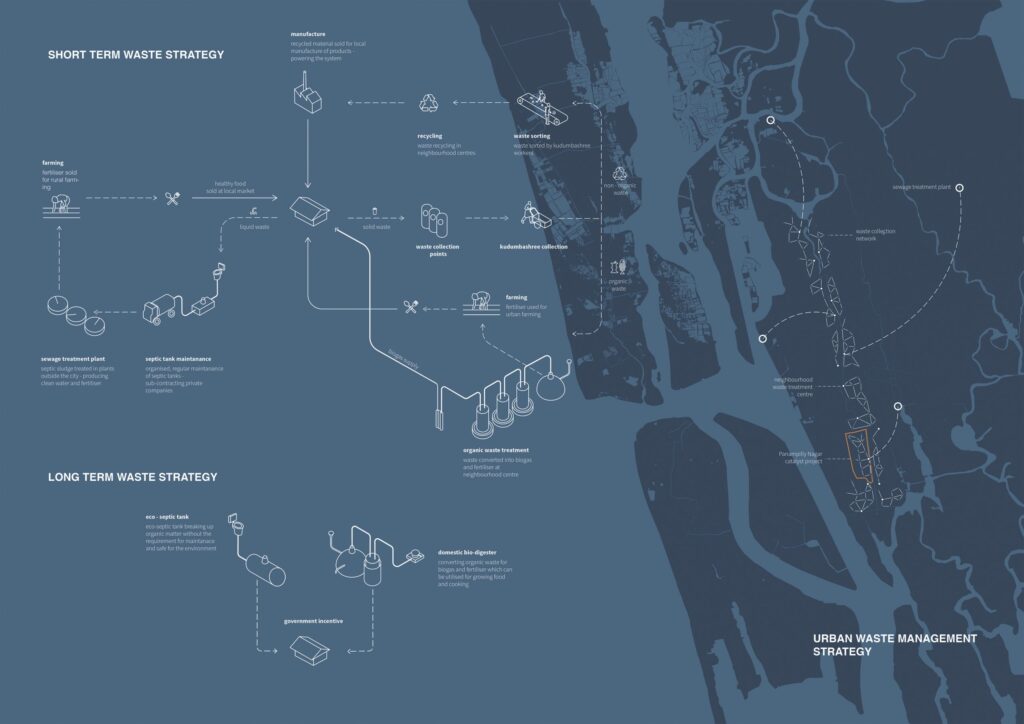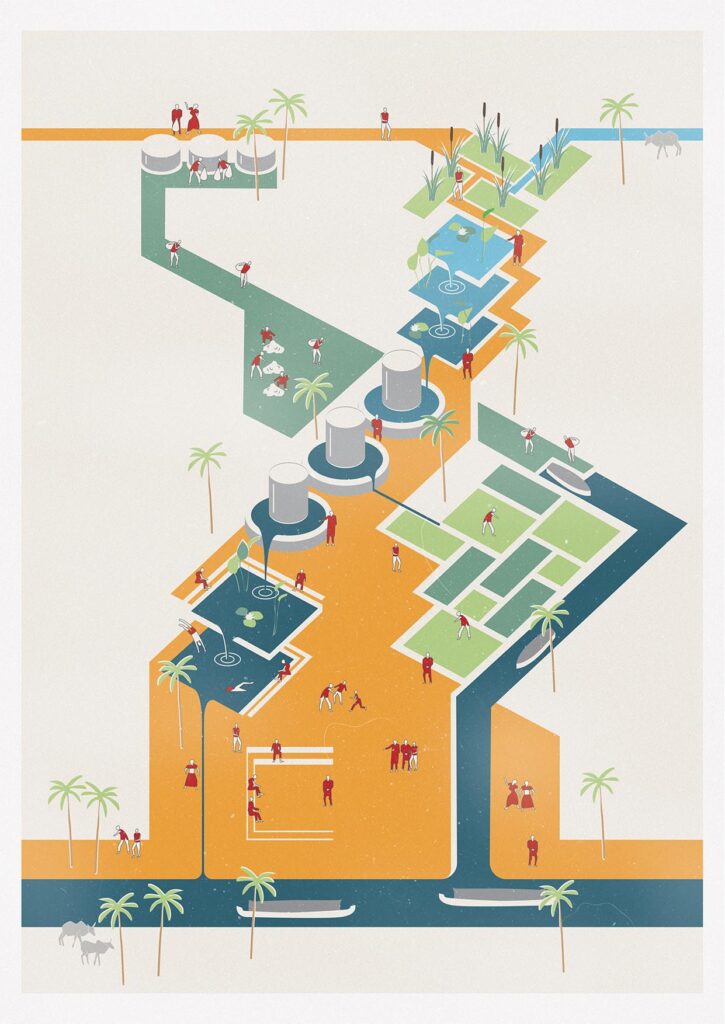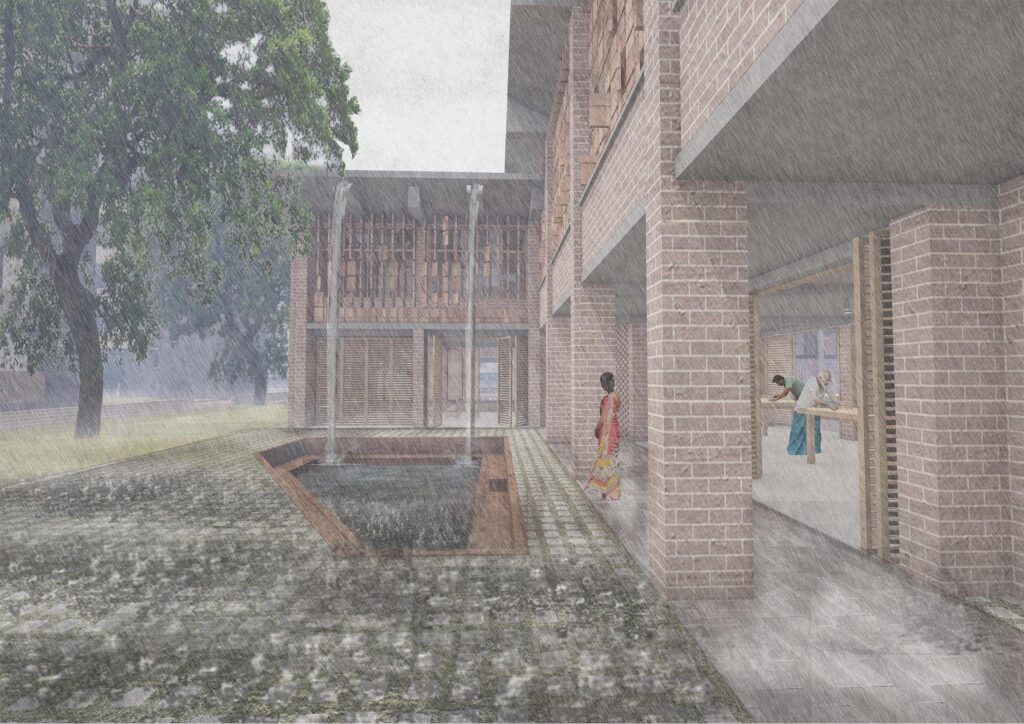“The Urban Regenerative Network”
Kochi is a city of water, where commerce and culture used to thrive along the city’s canals and waterways. Rapid urban growth in recent decades and a lack of waste management strategies have led residents turning their back on the waterways which consequently shifted from civic and commercial arteries to arteries of waste and sewage.
The thesis aims to develop an urban strategy based along one of the city’s main canals, creating a network of liquid and solid waste collection and treatment centres operated by an informal network of sanitary workers. The system of solid waste treatment will be developed in detail within a neighbourhood catalyst project, where collected organic waste, plastic, glass and paper are turned into a resource allowing to give back to the community while cleaning its environment. A harmonious ecosystem of waste is established, providing employment for the city’s most vulnerable and transforming the city’s communities as well as the urban environment. This catalyst will provoke change successively across the arterial canal, creating an informal regenerative network aiming to clean the city and its water.
The concept of the catalyst local recycling centre is based on openness. People can physically witness the volumes of waste produced and what happens with it once it leaves their households. This concept aims to incentivise people to recycle their waste and be more mindful of their environment. The waste centre becomes a public space, something the city of Kochi lacks across all neighbourhoods. Water purifying reed-beds become a park, waste recycling plants become the civic backdrop and the craft workshops, market and ponds become a space where people can come together, improving themselves and their neighbourhood.
Through this project, a typical neighbourhood is supposed to manage 4 tonnes of waste every day, which otherwise would have ended up in waterways. In the process, the centre will produce 126,600 kWh of biogas energy annually. The project will be self-sustaining through the up cycling of waste into energy and products, in turn giving employment to approximately 20 people in each centre.
The proposed Urban Regenerative Network aims to tackle the issue many cities across the world face today by facilitating and empowering people to take charge of their own environment while using waste as a resource to drive economic, social and environmental change. Only by sparking change at the roots can real changes be made, and people can once again live and thrive in the city of water.

The informal urban network of waste collection and processing generates a self-sustaining ecosystem, leading to the regeneration of the city’s arterial waterways.

A concept of the neighbourhood recycling centre envisaged as an open public space where the processes of waste treatment can be witnessed, and the clean city can be enjoyed.

The design of the community waste centre is inspired by local architecture, with open, permeable spaces and shaded courtyards. The idea behind the design is to utilise as many recycled materials as possible while allowing for cost-efficient and simple construction with easily available resources. Passive solutions are utilised across the scheme making it sustainable and less costly to operate.

A vision of the restored canal where civic life can once again thrive along the city’s waterways.
CONTACT EMAIL: olek.waga@gmail.com
LINKEDIN: https://www.linkedin.com/in/aleksander-waga-489430134/
Curated By Shannan Kamalaneson
